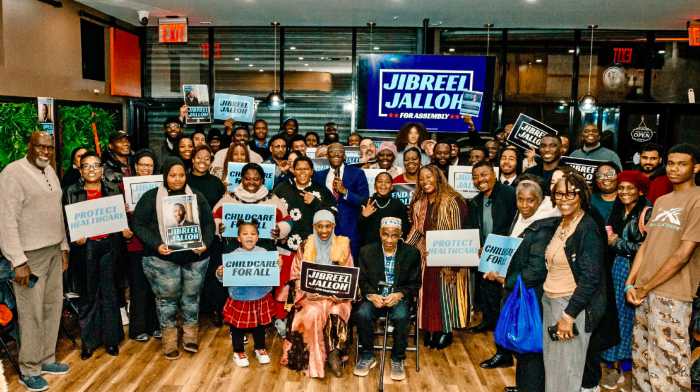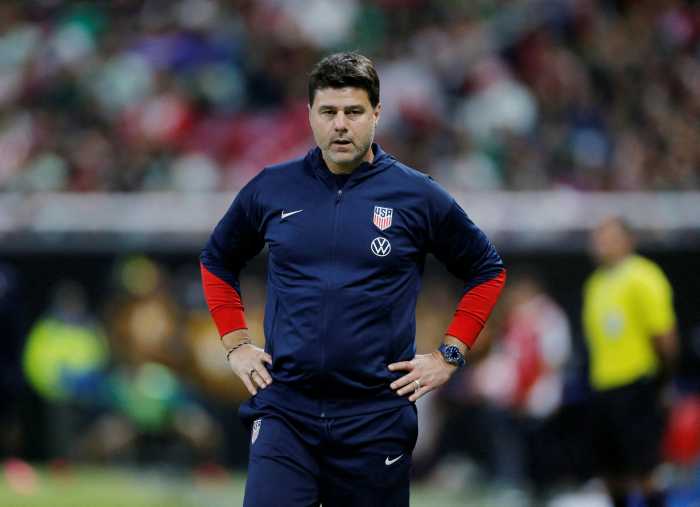Lateisha Green was 22 at the time of her slaying.
Transgender rights advocates are hailing the request by the New York Court of Appeals, the state’s highest bench, for full briefing and oral arguments regarding an appeals court ruling that overturned a first-degree manslaughter hate crime conviction in the 2008 death of a transgender woman in Syracuse.
Dwight R. DeLee, who was 20 at the time of the crime, was convicted in 2009 by an Onondaga County jury in the shooting death of 22-year-old Lateisha Green. The prosecutor cited anti-gay statements made by DeLee — including “get you faggots, get out of here… get the fuck out of here” — in arguing that the defendant was guilty of a hate crime motivated by animus toward Green’s sexual orientation. Bias based on gender identity — as opposed to sexual orientation — is not covered under the state’s 2000 hate crimes statute.
The jury did not convict DeLee on second-degree murder charges, but instead found him guilty of first-degree manslaughter as a hate crime. The jury proceeded to find the defendant not guilty on all the “lesser included” charges related to the killing, including simple first-degree manslaughter without the hate crimes penalty enhancement.
NY high court takes up manslaughter verdict in Lateisha Green slay
On July 19 of this year, a five-judge panel of the Appellate Division ruled 4-1 that because the jury acquitted DeLee on simple manslaughter its verdict was “inconsistent.” DeLee’s conviction was overturned, but William J. Fitzpatrick, the Onondaga County district attorney, appealed to the state’s high court.
“We strongly disagreed with the Fourth Appellate Division’s conclusion and are extremely pleased that New York’s highest court has agreed to consider the appeal,” said Michael Silverman, the executive director of the Transgender Legal Defense and Education Fund (TLDEF), in a December 8 statement. “We believe the jury reached a proper verdict based on its understanding of the Judge’s instructions, viewing first-degree manslaughter alone as a lesser offense and therefore choosing ‘not guilty’ on that charge, but concluding that first-degree manslaughter as a hate crime was the correct verdict, and therefore convicting DeLee on that charge.
In October, TLDEF was joined by Lambda Legal, the Empire State Pride Agenda, the Anti-Defamation League, and the New York City Anti-Violence Project in filing an amicus brief in support of Fitzpatrick’s appeal.
“Vacating that conviction would be a grave miscarriage of justice that would subvert the jury’s plain intent,” the brief read. “Allowing the person who shot Lateisha Green to walk free would frustrate the purpose of New York’s Hate Crimes Law, working in exact opposition to the Legislature’s two stated goals of enhancing punishment and deterring future hate crimes.”
The arguments made by the prosecutor and those joining the TLDEF brief were echoed by the appellate panel’s dissenter, Justice Erin Peradotto.
“In my view,” wrote Peradotto, “the jury’s verdict is reasonable and logical based upon the elements of the crimes as charged to the jury and, therefore, should not be disturbed.” The jury’s notes to the judge, she wrote, indicated it was convinced “the fatal shooting of the victim constituted a hate crime, but that the jury was grappling with whether to convict defendant of the hate crime of murder in the second degree, manslaughter in the first degree, or manslaughter in the second degree.” Once it determined DeLee was guilty of manslaughter in the first degree as a hate crime, it went on to the indictment’s second count and found him not guilty of simple manslaughter — as well as all the lesser offenses.
In the county prosecutor’s letter to the Court of Appeals, prompted by Peradotto’s granting its application to appeal, Chief Assistant District Attorney James P. Maxwell wrote, “The People provided the court with a sworn statement from the foreperson of the jury one week after the verdict. The foreperson indicated that the jury decided ‘relatively quickly’ that defendant committed a hate crime, and the jury did not find defendant guilty of the non-hate crime because that ‘would have been unnecessary or even “overkill.”’”
Looking to the instructions that County Court Judge William D. Walsh gave the jury, Maxwell noted, “The jury was never told in this case that its verdict on any of the homicide charges for the ‘non-hate’ counts had to be guilty if the jury found defendant guilty of the corresponding homicide charge as a hate crime… It was reasonable (and perhaps even required) that once the jury found that defendant killed his victim as a hate crime, the jury had to reject the theory that defendant killed the victim as a non-hate crime.”
Maxwell warned that if the appellate ruling is upheld DeLee “will go virtually unpunished for killing his victim, despite the overwhelming proof that defendant killed the victim because of defendant’s belief that the victim was homosexual.” That would mean that DeLee, who has been in prison since his 2008 arrest, would avoid the minimum sentence of 10 years based on his past criminal record and the hate crime conviction.
After reviewing letters from Maxwell and from DeLee’s attorney, the high court requested full written briefs in the case, which will be followed next spring by oral arguments.
TLDEF’s Silverman told Gay City News that DeLee’s conviction was the first time a defendant in New York State was found guilty of a hate crime in the killing of a transgender victim. Only one other defendant in the nation was similarly convicted, according to TLDEF.
“The appellate ruling that put Dwight DeLee back on the streets frustrates the goal of the New York State hate crimes law,” Silverman said. “The goal in the appeal is to send the message that it is not okay to commit a murder against a transgender person.”
He acknowledged that DeLee’s hate crime prosecution was made possible by the district attorney’s ability to point to anti-gay statements the defendant made in committing the crime. That approach was “a workaround” the shortcomings of the existing hate crime law, Silverman said.
In fact, in its letter to the high court, the district attorney’s office referred to the victim as “a transgender individual named Moses Cannon who identified and lived as a female and chose the name LaTeisha Green or ‘Teish.’”
Silverman noted that the pending Gender Expression Non-Discrimination Act (GENDA), long stalled in the State Senate, would add the category of gender identity and expression to the 2000 hate crimes statute. Asked about statements from some of New York’s district attorneys that they would prosecute anti-transgender violent crimes under the law’s protections based on gender, Silverman said, “It is always better to spell out categories specifically, and that’s never more true than in something like a hate crimes law. Rather than be in a position of relying on the good will” of district attorneys.
Through TLDEF, Roxanne Green, the victim’s mother said, “I was outraged that our daughter’s killer was released from prison on a technicality. Now I feel some relief that New York’s highest court will review this case. I want justice for Teish.”


















